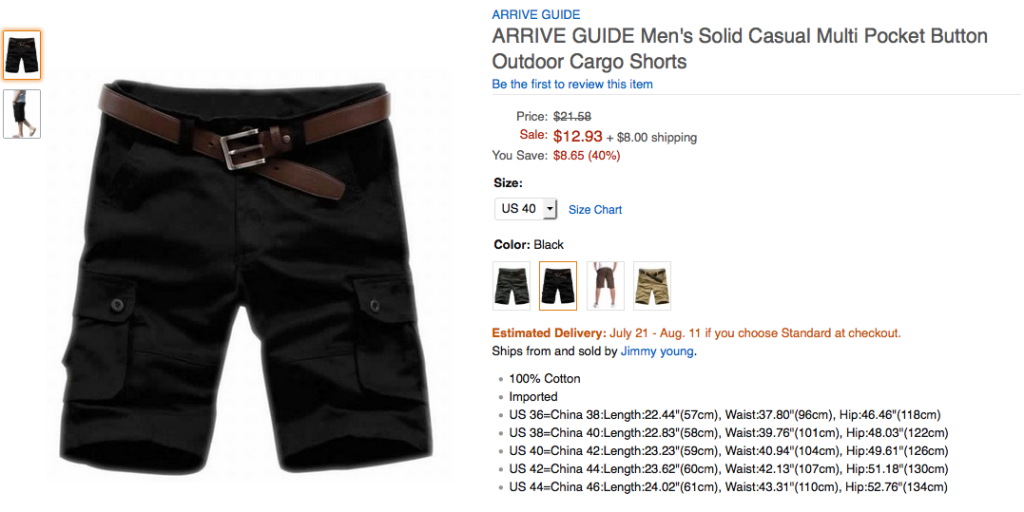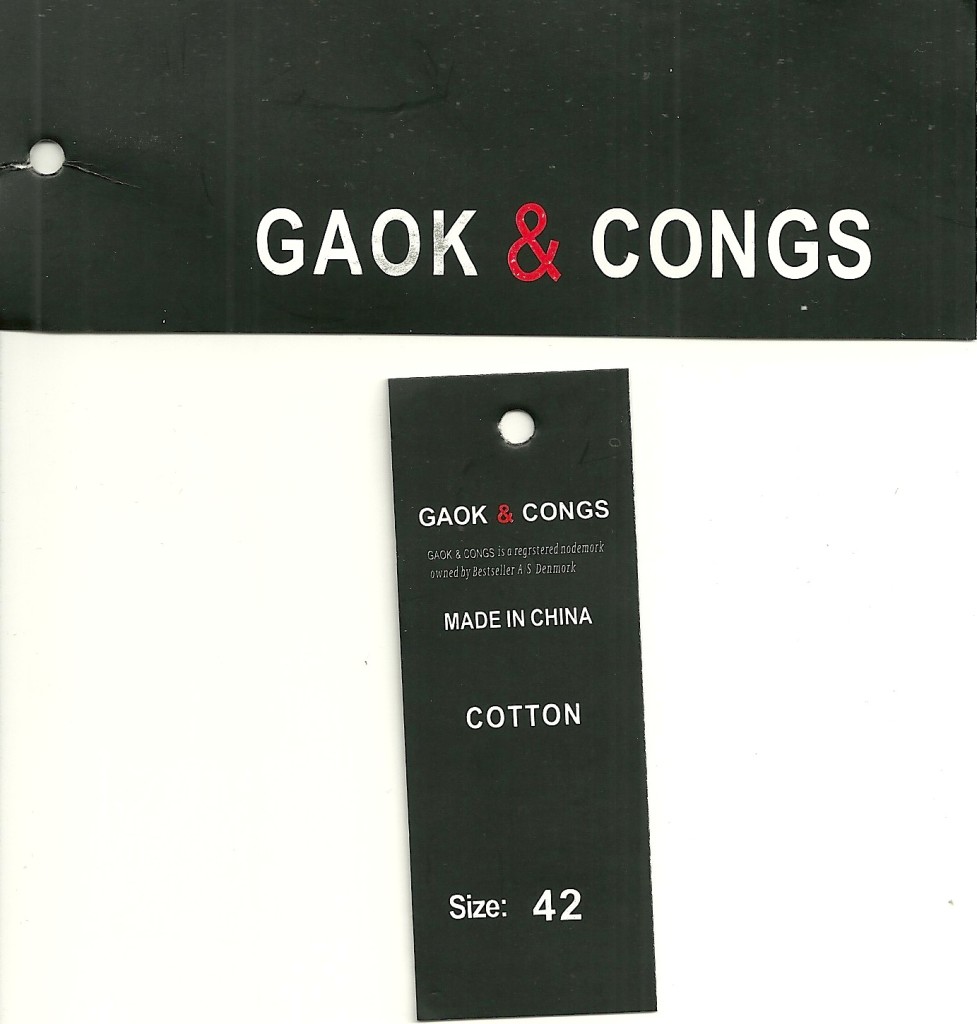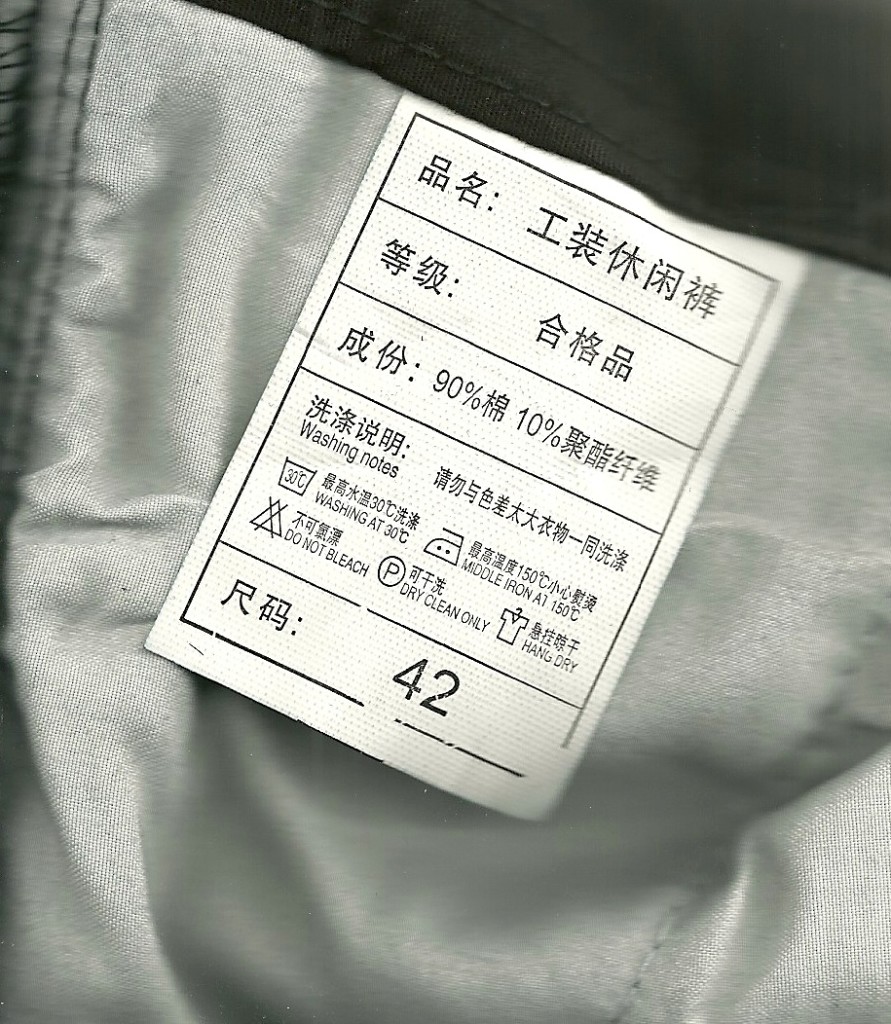Here’s a lesson in caution when buying Chinese-made goods in the global marketplace.
When it comes to the clothes I wear I’m both particular and cheap. I only wear 100% cotton, because Polyester and other artificial materials irritate my skin. I keep hearing that the new “polyfine” materials feel better, but every time I try to put on a poly/cotton shirt, I instantly go “Nope!” and take it off.
Since I live in Austin (and work in high tech, where I can get away with it), I tend to wear cargo shorts in the spring, summer and fall. I used to buy them at Academy, but they haven’t had any 100% cotton cargo shorts in black the last few times I dropped by.
So I did what everyone does when they can’t buy something locally: I bought from Amazon.
Here are the precise shorts I ordered: All black, the right look, under $20 and 100% cotton.
Or so the Amazon listing said:

So I ordered them, and a few weeks later I get them shipped straight from China. Upon arrival, I see these tags:

(Note that nowhere on the Amazon page did it list “Gaok and Congs” as the manufacturer.) And this is the only material label inside the shorts:

I can’t read Chinese, but I had a firm suspicion what 聚酯纤维 meant in English, and an Internet search confirmed my suspicions. What Amazon sold as “100% cotton” were actually 10% polyester fiber.
There’s always been a bit of caveat emptor when buying goods manufactured abroad, but one of the roles of traditional middle men was verifying the quality and content of goods before accepting them for sale. Amazon’s business model effectively eliminates that quality control role, letting consumers buy directly from global suppliers. This saves money, but frequently Chinese suppliers are willing to forgo such niceties as telling the truth about their products…
“I used to buy them at Academy…”
To hell with Academy.